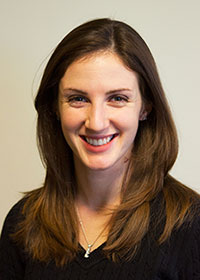 The Robert T. Kenney Scholarship is the largest independent college scholarship program from a single source of funds in Connecticut. The program is named after founding chairman, Robert (Bob) T. Kenney. You can read more about Bob Kenney here.
The Robert T. Kenney Scholarship is the largest independent college scholarship program from a single source of funds in Connecticut. The program is named after founding chairman, Robert (Bob) T. Kenney. You can read more about Bob Kenney here.
News
All School of Business pressroom news
A Parental Tribute Supports Future Students
Business Expert: Understanding Culture is Vital to Conducting Business in Asia
 If you were trying to market a chocolate product in China a few years ago, you’d have had a very difficult time. That’s because, until recently, the Chinese believed that eating chocolate could cause nosebleeds.
If you were trying to market a chocolate product in China a few years ago, you’d have had a very difficult time. That’s because, until recently, the Chinese believed that eating chocolate could cause nosebleeds.
That was one of many stories that international marketing expert Dara MacCaba shared during a program titled “Building Innovative Brands—Insights from Asia.’’
If you don’t understand the Chinese culture, your efforts to promote even the best products will probably fail, MacCaba told 70 students and faculty during a January 14 program at the Graduate Business Learning Center in Hartford.
MacCaba is the founder of Lucid360, an innovation consultancy company, with offices in New York and Shanghai, which helps global companies position their products in new markets. Lucid360 has represented such industry giants as McDonald’s, L’Oreal, Unilever, Wrigley’s, Colgate, Coca-Cola, Microsoft, GlaxoSmithKline, Nestle, Philips and Castrol.
“You must empathize and walk in the shoes of the people you’re dealing with, and try to understand what it’s like to be a Chinese consumer,’’ said MacCaba, who typically spends two weeks in Shanghai every other month.
He described China as a big, competitive and challenging market, with rapidly changing trends. The business opportunities are further complicated by legal regulations, cultural beliefs and regional preferences.
MacCaba’s presentation offered insights into the many ways that Chinese culture differs from American beliefs. He began by displaying a map of the world, which showed China in the center and the rest of the world on the periphery. It illustrates how differently Americans and Europeans view their positions in the world, he said.
He also displayed an image of a Chinese beach where people donned colorful UV-protection masks which might resemble a Halloween mask to an American. It is important to keep an open mind when dealing with cultures that are different from yours, he added.
Lucid360 uses many ways of tracking trends, from traditional research to conversations with people on the streets, he said. In China, it is not unusual to select brands that are recommended by friends.
For instance, if you were trying to market baby formula in China, where there has been great mistrust, you would need to know that many new mothers turn to experienced friends–not their own mothers or advertising–for advice on which product to select, MacCaba said.
When Quaker Oats wanted to sell its product in China, the company discovered that breakfast cereal is a very tiny market in China. But because there is a bigger demand for snacks, Quaker Oats was able to devise an oatmeal shake that could be sold as a healthy, portable snack, and it sold well, MacCaba said.
One of the biggest challenges for MacCaba and his team was trying to introduce Glenfiddich whiskey to the Chinese market. The whiskey was the top brand in the world, but unknown to Asian consumers.
The problems were plentiful. In Chinese nightclubs, inexpensive whiskey was mixed with green tea as a fast-track method of getting drunk, MacCaba said. Its reputation wasn’t good.
Lucid360 recognized that Glenfiddich needed to present itself as a premium beverage and distinguish itself from other brands. Instead of competing with other whiskeys, it would vie for its place alongside cognac, long considered a luxury beverage in China. New packaging was designed by Glenfiddich that was more in line with the cognac bottle.
The last piece of the puzzle was recognizing that the Chinese place great importance on gifting, he said. So Glenfiddich was marketed as a desirable gift to give when deepening a relationship—perhaps with an architect or an entrepreneur. The positioning worked and the brand was embraced, he said. The lesson, MacCaba said, is don’t assume that similar products are your competition.
“You need to be distinctive and know why people like your product,’’ he said. Investigate how other companies have successfully integrated their products, he said.
For instance, when Wrigley’s wanted to introduce a new gum in China, it didn’t take the approach it might have in the United States—with an expert wearing a white lab coat, touting the benefits of oral hygiene. Instead, it promoted the vitamin benefits in the product, which appealed to Chinese consumers.
MacCaba said it is also important for U.S. companies to know “where they have permission to play.’’ One firm that tried to combine the benefits of Eastern and Western medicine and failed terribly. Another company that manufactured safe home-cleaning chemicals encountered unsurmountable legal regulations, he said.
To illustrate the competitive nature of the country, MacCaba described how Lipton created a “milk tea,’’ a drink that is popular in China. It did well in Shanghai but soon competitors were producing a product in similar packaging. Smaller companies were also able to introduce new flavors more quickly than the U.S. company. So over time, it became less profitable for Lipton.
One student asked about the “product copycat’’ issue in that country and MacCaba said there certainly are knockoffs. One beverage company he represents gets more bottles returned than it sells, so that indicates the prevalence of the problem.
Digital media is exploding in China now, he said. Facebook—currently barred from China—may never make it to that country, he said, because already the Chinese are integrating new, more sophisticated technology that may make it obsolete.
“The fact that China changes so rapidly,’’ MacCaba said with a big grin, “is very good for client retention!’’
UConn B-School to Host Free Breakfast Seminar Feb. 24 – Long-term Thinking in a Short-term World
The University of Connecticut School of Business will offer a free breakfast seminar for the business community titled, “Long-term Thinking in a Short-term World,’’ from 7:30 to 9:00 a.m. February 24 at the Graduate Business Learning Center, 100 Constitution Plaza, downtown Hartford.Continue Reading
Doctoral Student Margaret Luciano Wins Scholarships for Work on Employee Dynamics in Hospital Patient “Handoffs”

Margaret (“Maggie’’) Luciano, a doctoral candidate at the UConn School of Business, has been awarded two scholarships in recent months recognizing her achievements in the field of organizational behavior.
The Society for Industrial/Organizational Psychology’s (SIOP) Lee Hakel Graduate Student Scholarship recognizes achievement in a graduate career and is intended to assist doctoral students in the field of industrial and organizational psychology with the costs of carrying out their dissertation work. She received the award in January.
It is the second recognition for Luciano, who, late last year also received an award from the Society for Human Resources Management for her dissertation proposal. She was selected as one of four promising researchers.
Her dissertation research focuses on understanding and improving cross-unit coordination between hospital units, and the dynamics between such groups.
She has investigated patient “handoffs’’ as they move from surgery to a recovery room. During baseline assessments, upwards of 20 percent of these handoffs were found to be lacking in one or more important ways, jeopardizing patient care.
“Margaret’s dissertation is a stellar example of cutting-edge applied research,’’ said John Mathieu, professor of management and Luciano’s adviser. “Conceptually, Margaret tests theoretical questions concerning the integration of employees’ individual differences and how they combine to perform interdependent actions. Practically, she devised and implemented a work process improvement which essentially orchestrated how different parties should function during these handoffs.’’
“Her dissertation represented a serious organizational change for the hospital, involving everyone from top management to the nurses and doctors performing the handoffs. Her field experiment revealed that her intervention reduced the percentage of problematic handoffs to approximately 4 to 5 percent—a 75 percent decrease from baseline,’’ Mathieu said.
Both the Society for Human Resource Management (SHRM) and the Society for Industrial/Organizational Psychology (SIOP) awarded her competitive research grants on the basis of her proposed work. The criteria for both awards are that the work should advance both the science of human behavior in organizations, while also advancing practice and human welfare, Mathieu said.
Her research on these and related topics has appeared in the Journal of Applied Psychology and other peer-reviewed journals.
Luciano will join the management faculty at Arizona State University after completing her doctoral program at UConn. She earned her bachelors degree in psychology in 2009 and her MBA in 2010, both from Clark University in Worcester, Mass.
Greater Hartford Accounting Firms Facing Workforce Shortage
Hartford Business Journal – Hartford area accounting firms say they are on a hiring spree to address a region-wide personnel shortage driven by heavy workloads, increased competition for talent, and professional burnout.
While accounting has historically been an in-demand profession, a few changes in recent years have amplified competition among firms and corporations recruiting talent, said Mohamed Hussein, a professor and head of UConn’s accounting department, which graduates over 100 accounting majors per year.
New School of Business Website Offers Easier Navigation, Mobile Access, Other Improvements
After an extensive design review, the UConn School of Business has launched an improved web site (www.business.uconn.edu). Visitors will notice a new content design with streamlined navigation and improved mobile access.
Additional new features include:
- Research-focused section
- Recruiter information
- Details on how to engage or partner with the School
- Expanded pressroom with categorized news items
- Social media directory
- Campus-specific information
The new site will undergo regular upgrades during the upcoming months to maximize the quality of the user experience.
We are excited about our new look and functionality, and hope you will be as well.
All visitors are welcome to report any feedback or concerns to our web development team. Please feel free to contact the Office of Communications at communications@business.uconn.edu.
Builders See Promise in Homes for the Aging Set
ctpost.com – “The over-55 group needs to sell their current homes before they can think about buying into an over-55 community, so I see the market for existing homes as an indicator as to the future of over-55 home construction,” said Katherine Pancak, professor-in-residence of finance and real estate at the University of Connecticut School of Business.
Biotech and Biopharma Industry Get Boost from Business Community
CT News Junkie – The new [Connecticut Bioscience Growth Council] is forming at a time when bioscience is gaining momentum in the state, said Fred Carstensen, director of the Connecticut Center for Economic Analysis at the University of Connecticut.
UConn Women’s Basketball Game CREW Event
 The Commercial Real Estate Women (CREW) of Connecticut and the Center for Real Estate will host the first annual CREW CT UConn Women’s Basketball Event on Tuesday, February 3, 2015. Students and professionals from CREW will have an opportunity to network at a reception to be held from 5:00 – 7:00 p.m. at McCarter English LLP, 36th Floor, CityPlace, 185 Asylum St., Hartford, Conn.
The Commercial Real Estate Women (CREW) of Connecticut and the Center for Real Estate will host the first annual CREW CT UConn Women’s Basketball Event on Tuesday, February 3, 2015. Students and professionals from CREW will have an opportunity to network at a reception to be held from 5:00 – 7:00 p.m. at McCarter English LLP, 36th Floor, CityPlace, 185 Asylum St., Hartford, Conn.
Following the reception, the UConn Women will take on the Cincinnati Bearcats at the XL Center at 7:00 p.m. Tickets are $26.00 and available through the registration link.
To register for this event and purchase tickets click here.